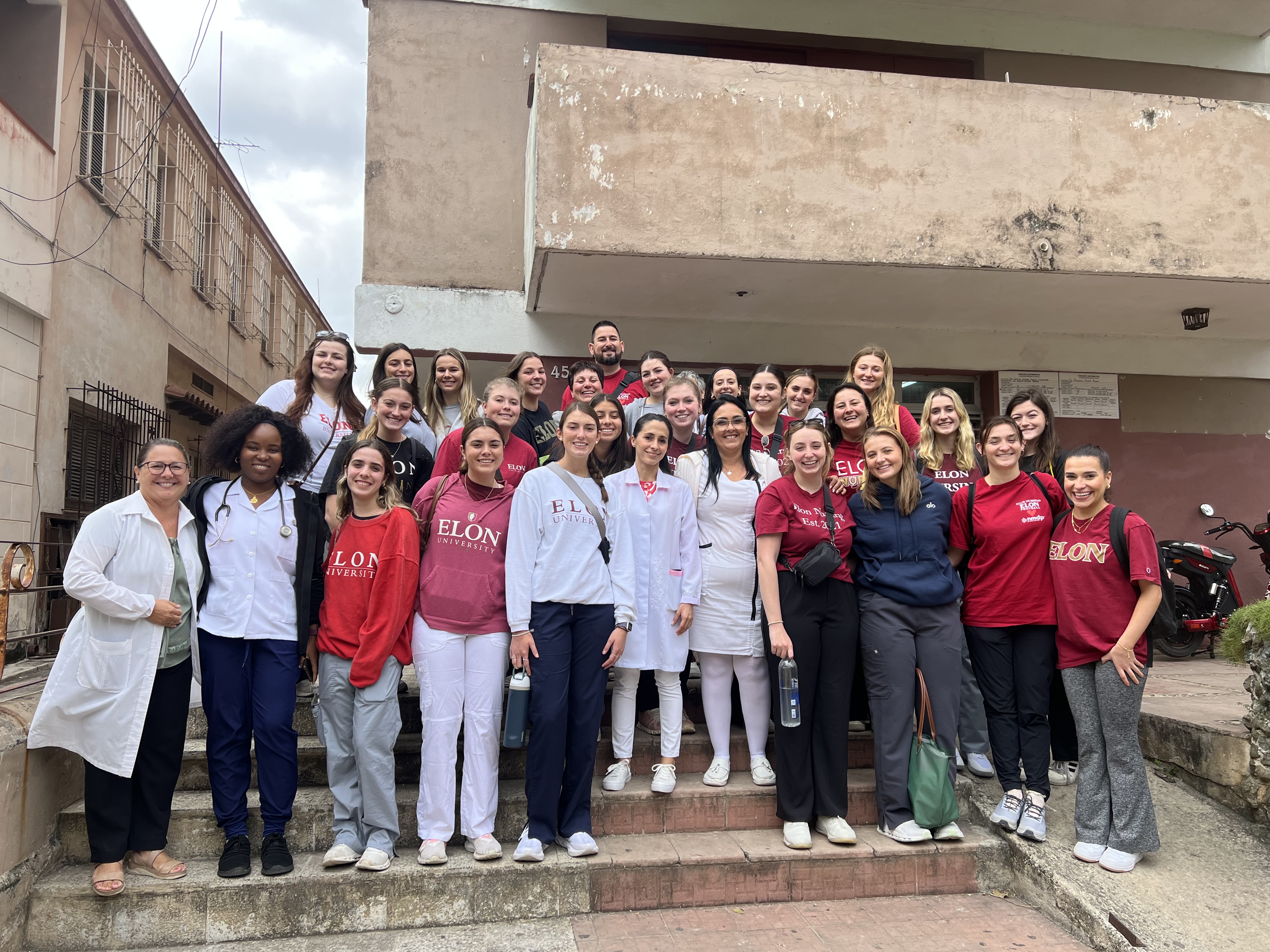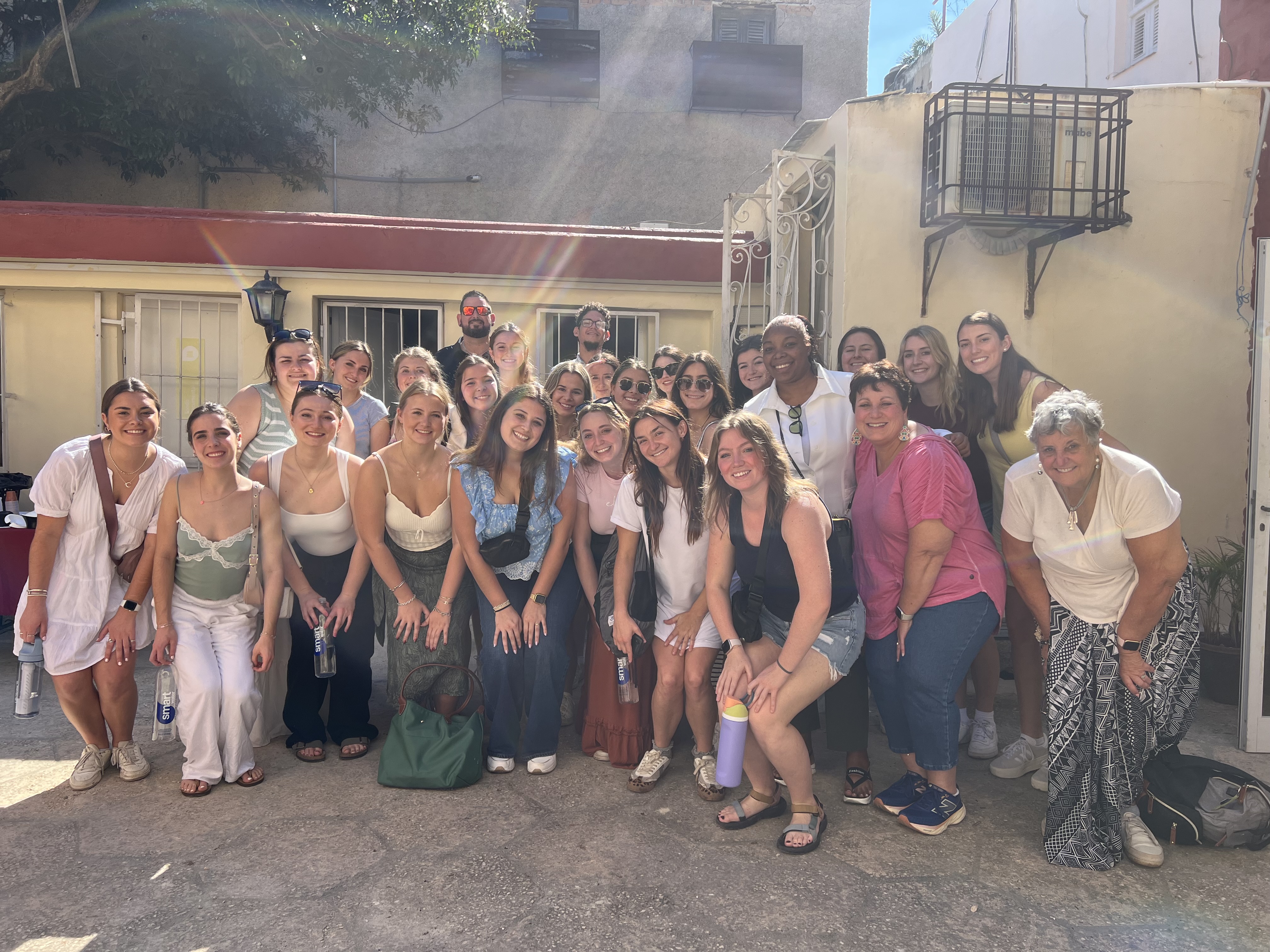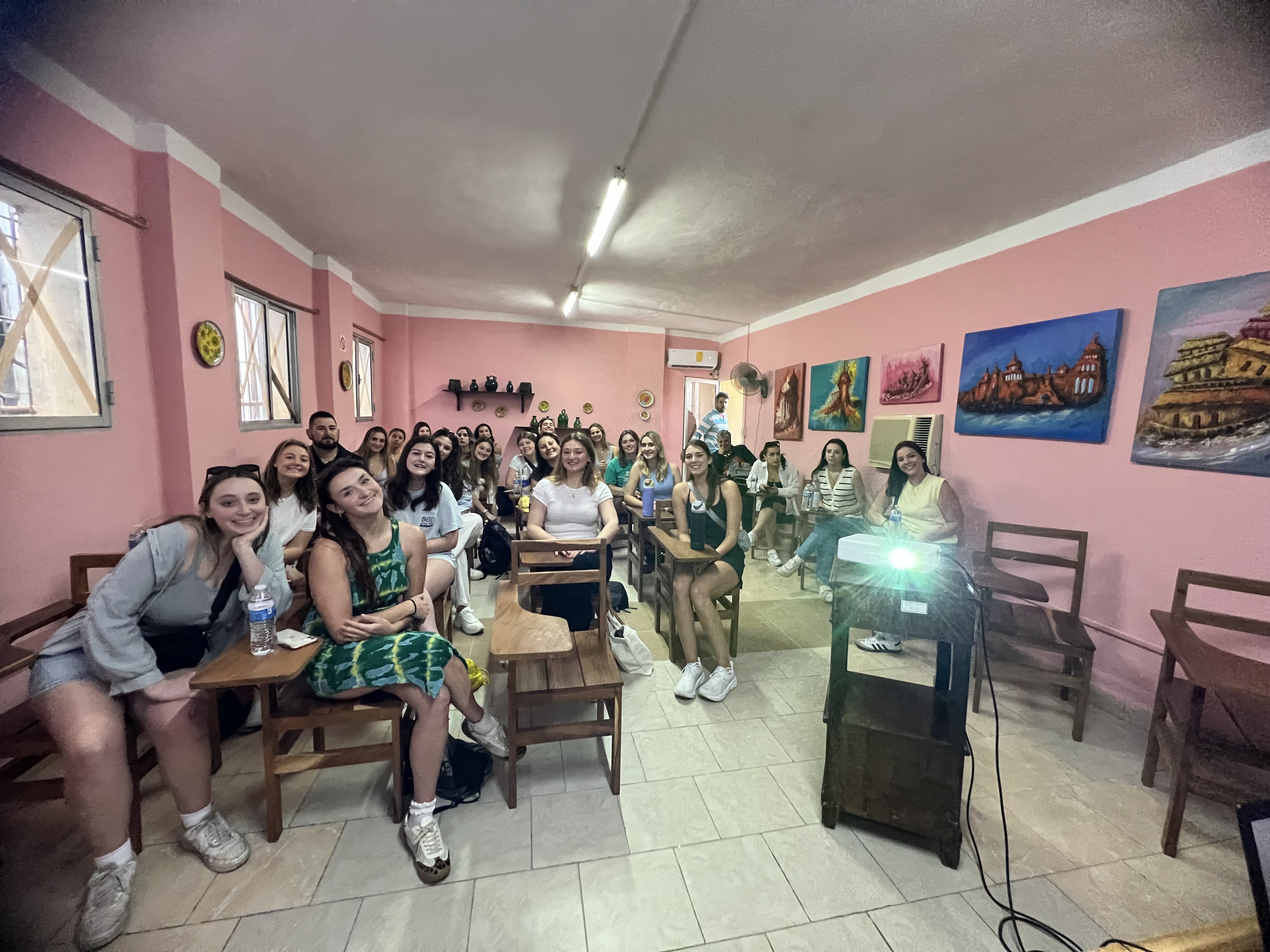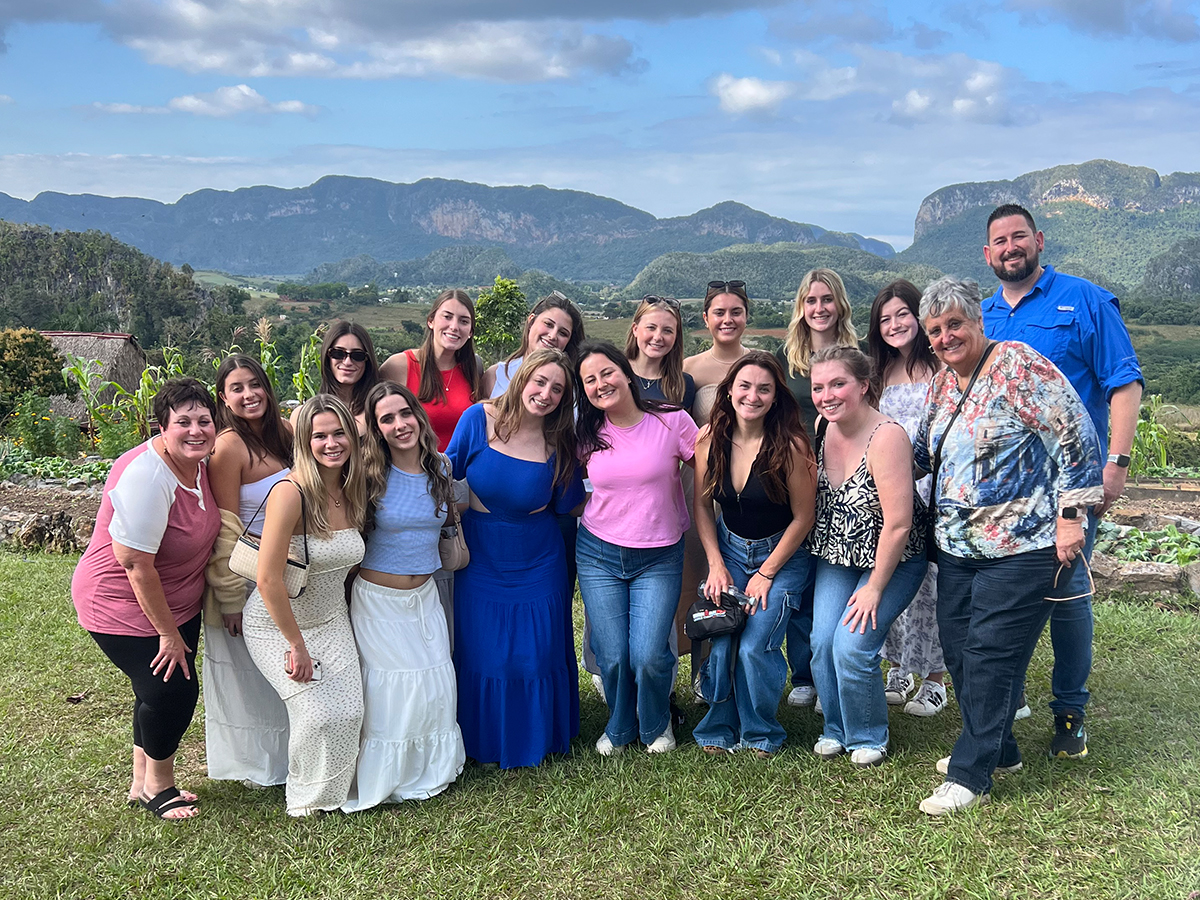A group of nursing students traveled to Cuba in January for a first-of-its-kind Elon University Winter Term study abroad program.
Meridith Korwan ’26 says she was stepping outside of her comfort zone as one of the first Elon University students to participate in a new Winter Term study abroad opportunity in Cuba.
“This was an extremely different experience compared to my other times abroad,” said Korwan, who had previously traveled abroad to Europe. “I was excited to experience healthcare in a different country. I was curious and eager to learn about different systems and experience a different culture with other nursing students by my side.”
Twenty-four nursing students, including Korwan, spent 18 days in Cuba for Elon’s Winter Term experience, “Healthcare, Culture and Language.” Every Winter Term, Elon offers a variety of study-away experiences, providing students with an opportunity for global and experiential learning. The goal of the program was for students to compare the healthcare systems in the United States and Cuba.
Students were divided into five groups with different focuses, including pediatrics, maternity, end of life, public health and chronic disease. They visited facilities related to those areas while bringing donations that might assist healthcare staff or patients.
“My favorite part of the trip was our visits to the primary school, a nursing school and family doctor’s offices,” said Korwan. “I appreciated an opportunity to step into the community at the primary school and see the healthcare at schools. The children even performed a few dances and songs for us!”

‘Appreciation for their blessings’
The program was organized through Elon’s Isabella Cannon Global Education Center and led by Jeanmarie Koonts, assistant professor of nursing, and Cyra Kussman, lecturer of nursing, who said they wanted students to build critical thinking skills and understand the limitations of both the American and Cuban healthcare systems.
“We hope students will develop the joy and passion that is nursing, awareness, resiliency, respect for health care workers outside the U.S., self confidence and an appreciation for their ‘blessings,’” said Koonts and Kussman.
The students worked through an interpreter for classroom and clinic visits, something Kussman and Koonts say will help in their nursing careers.
“They can now relate to the patient who is in need of an interpreter and who is unable to speak and clearly communicate with others,” said Koonts and Kussman. “This will add in developing a student’s compassion, patience and understanding. It will also help to build their professional skills as they learned to work together to figure out how people and systems can and do function, even with limited technology.”

A vocation of caring
The program challenged students in more than just their nursing skills. It introduced the class to navigating difficulties found within a developing country, including limited technology access. Since 1962, the U.S. has maintained a comprehensive economic embargo on Cuba.
“Coming into Cuba I was really scared because it was the unknown. We didn’t know anything going into this trip because any time you search Cuba online in the U.S., there are only bad things written,” said Antonella Tommasi ’25. “But coming to this country, meeting these people, and experiencing their lives with them has made me appreciative of the experience. It also makes me want to show others that Cubans are not bad people. They are truly caring and loving people and were so welcoming and excited to see us.”
Students also lived with the Cuban people for part of the program – an invaluable experience for Tommasi.
“We got to see the true way Cubans live but also see their country through their eyes,” said Tommasi. “One of the biggest takeaways from this trip is that Cubans have a heart of gold and no matter what, they will have no hate for others, which truly shows the type of people they are.”
Koonts said she hoped that the program helped students remember that they can do difficult things.
“They can battle homesickness, lack of connectivity, lack of toilet paper and bathroom facilities, eating beans and rice for 18 days and more, and come out all the better for it. They can dig deep and find the best versions of themselves,” said Koonts and Kussman. “We hope they will be better prepared by remembering that nursing is a vocation of caring, skill and love which has no set language, culture or boundary and yet which binds us all.”

About Elon University’s Department of Nursing
Elon University offers two tracks to earn a Bachelor of Science in Nursing (BSN) in the School of Health Sciences: a four-year program and an accelerated program (ABSN).
Elon’s four-year BSN is a direct-entry program. Admission to the program is designed for students who demonstrate a commitment to nursing as their profession. Coursework is closely aligned with clinical experiences in multiple settings, including the opportunity for hands-on learning in diverse and international settings.
The ABSN program is an intensive, 16-month post-baccalaureate program that prepares nurses who are committed to local and global health equity and demonstrate the ability to think broadly, critically and creatively to optimize client-centered care. Applicants to the ABSN program will have an earned bachelor’s degree in any field and will have completed 18-24 hours of prerequisite coursework prior to admission.



